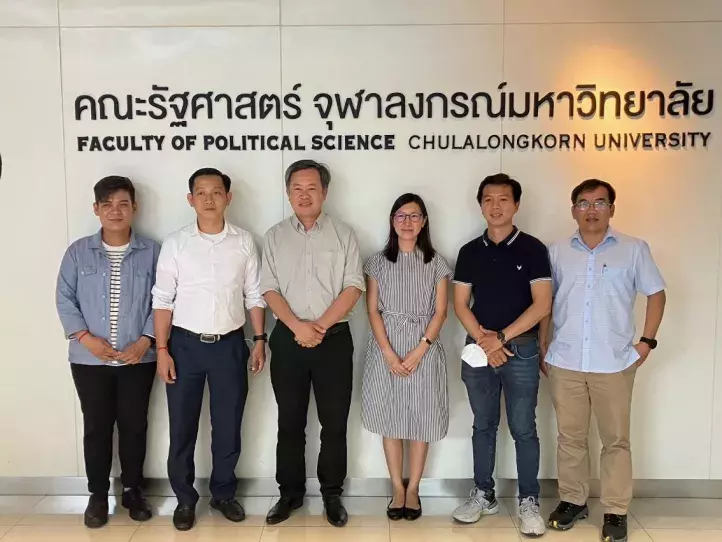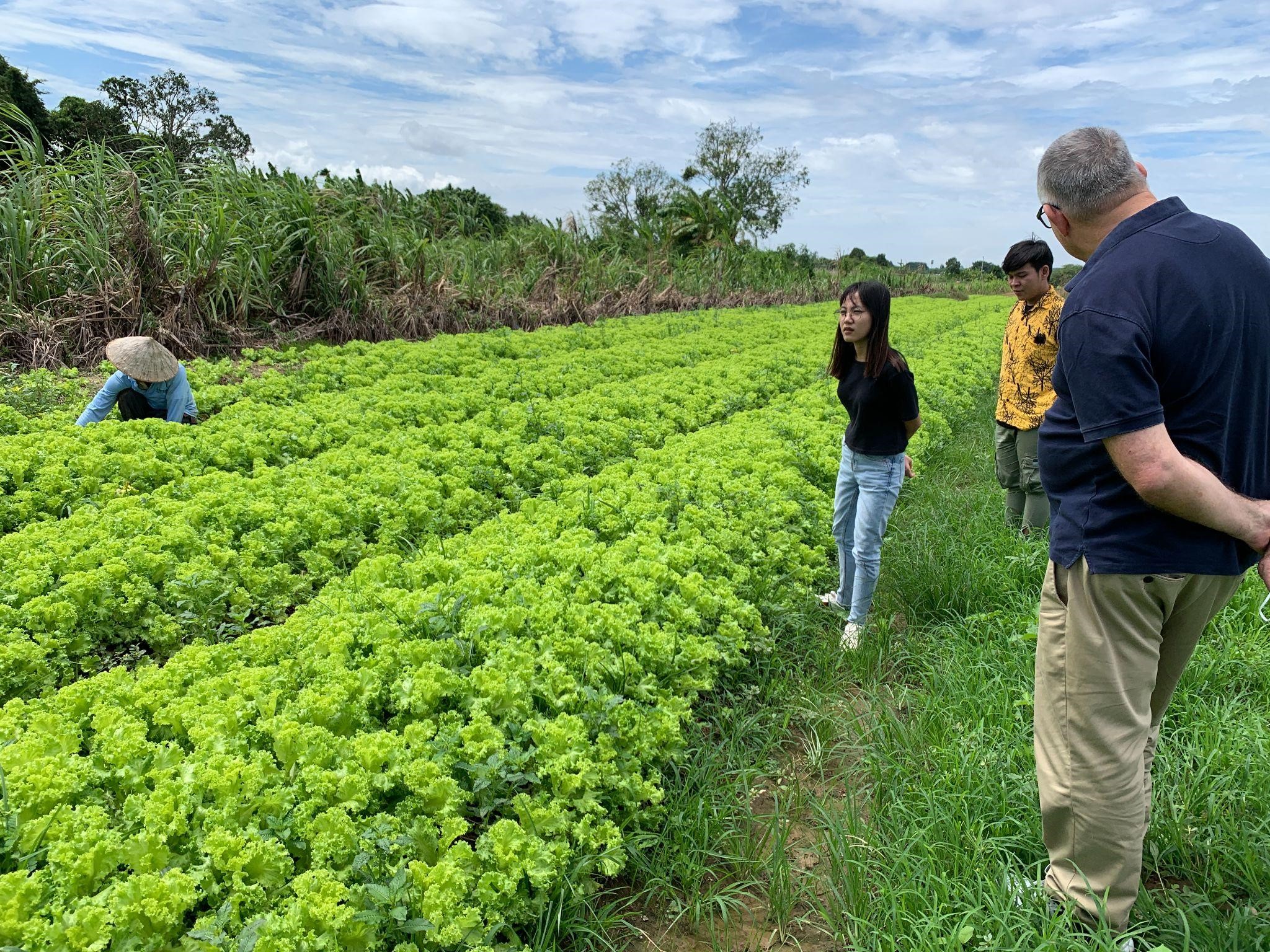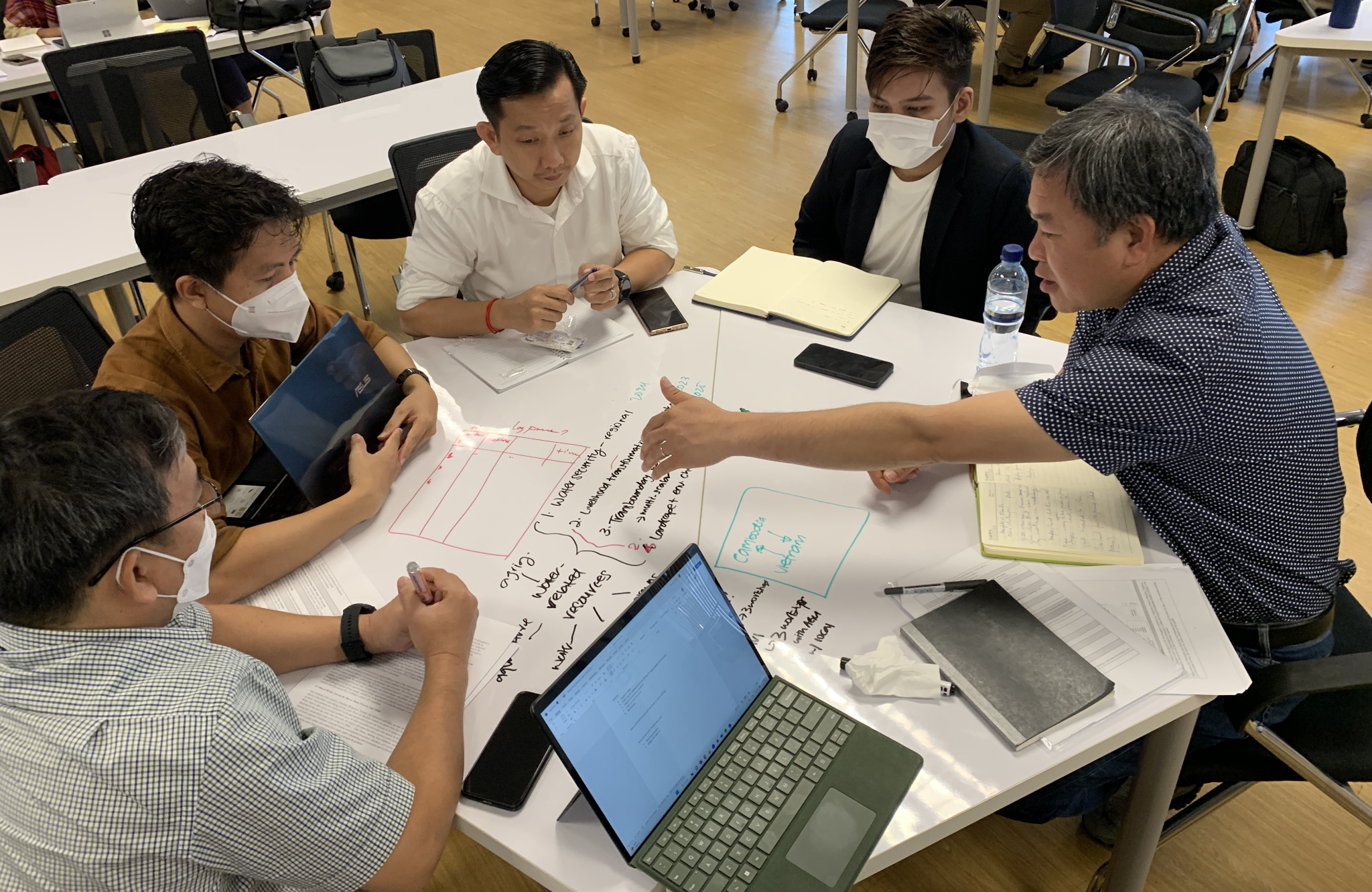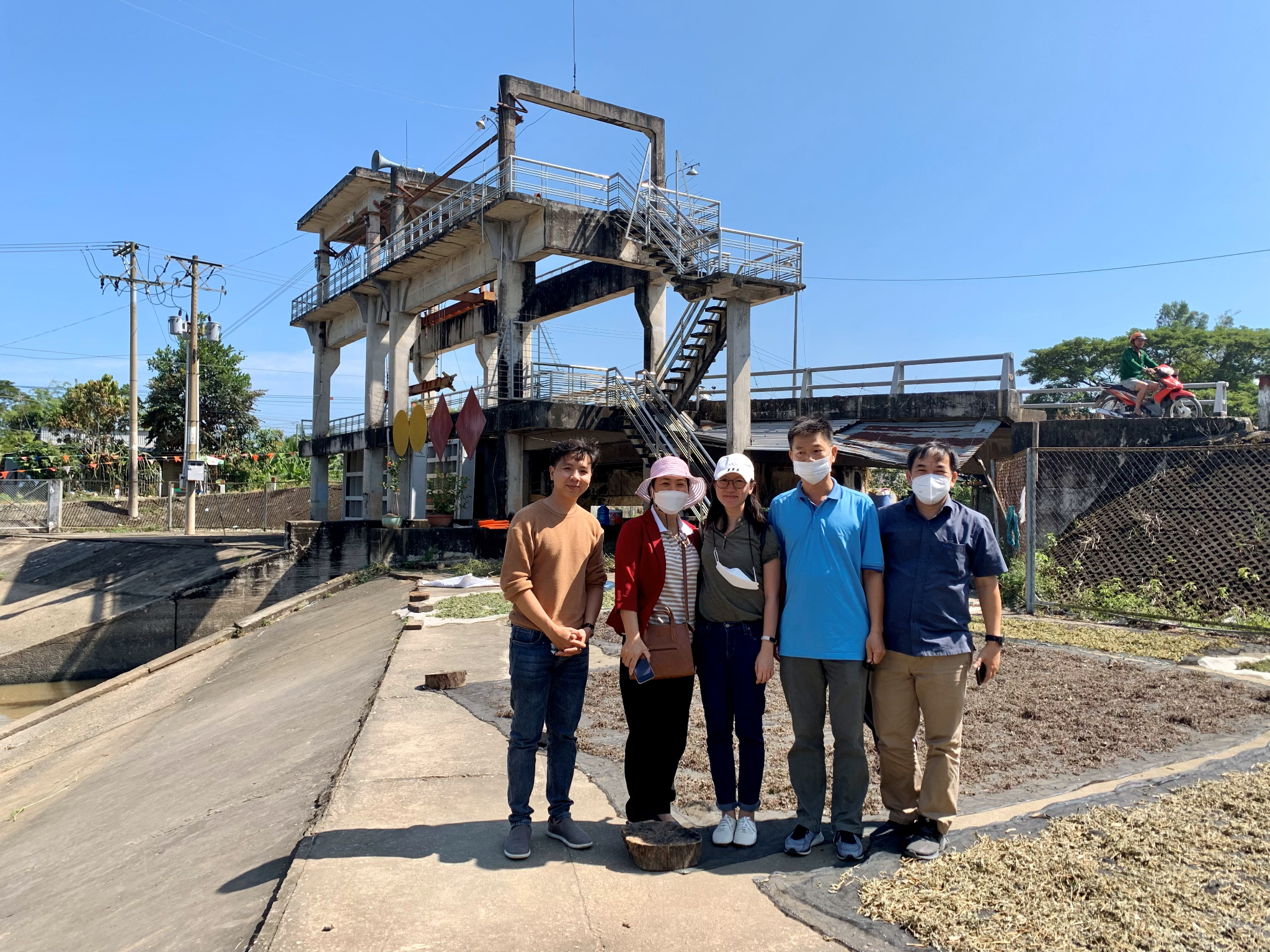Error message

OFFICE/DEPARTMENT
From left to right: Sok Chansophea (Asian Vision Institute, Cambodia), Ngo Sitthykun (Asian Vision Institute, Cambodia), Tran Anh Thong (University of Melbourne, Australia), Ming Li Yong (East-West Center), Vo Van Oc (An Giang University, Vietnam), Tran Van Hieu (An Giang University, Vietnam). Not Pictured: Keo Piseth (Asian Vision Institute, Cambodia)
Project Objectives
This project proposes a conceptualization of a transboundary Mekong Delta that would include both Cambodia and Vietnam, which explores the multi-dimensional production of vulnerability and resilience of changing livelihood patterns and strategies of farmers residing in the wetlands and floodplains of the delta. This is done understanding how changing hydrosocial relationships have implications for livelihood security in the Mekong Delta. In Cambodia, a system of lakes provides natural infrastructure that regulates flooding and supports important aquacultural and agricultural activities in and around Phnom Penh, although development around these lakes threaten these benefits. In Vietnam, decades of state-led hydraulic development in the floodplains have sought to improve rice intensification and flood management in the delta but have however also hindered rural adaptation to the contemporary challenges that deltas face.
This research study is jointly carried out by EWC, the Climate Change Institute in An Gian University, Vietnam, and the Asian Vision Institute, Cambodia. Through a cross-border comparison, the research objectives are:
- To understand the linkages between water security and livelihoods in the Mekong Delta. This will involve understanding local perceptions of water availability in terms of its scarcity or abundance, and how this has impacted on water resource infrastructure development, livelihoods, and biophysical processes in the delta.
- To understand how hydrosocial and livelihood changes in the Mekong Delta are situated within transboundary water governance dynamics in the Mekong River Basin. This will involve an examination of local-level water governance arrangements, identifying gaps and opportunities for transboundary management of water resources and water-related resources, and understanding how upstream threats such as hydropower development pose to livelihoods in the delta.
Project Status Summary
We have carried out scoping trips in Kandal and Takeo provinces in Cambodia, and in An Giang Province in Vietnam to identify potential field sites for the research. In Cambodia, we visited vegetable farms in Kandal Province, and the flooded landscapes of Takeo Province to understand rural livelihood challenges in the area, which range from perceptions of over-development and under-development that raise challenges for river-based livelihoods. In Vietnam, we visited two districts in An Giang Province to understand the intersections between water governance and rice/fishing livelihoods where water resources infrastructure such as dikes and sluice gates, alongside farming calendars, have altered biophysical processes and hydrosocial relationships in these areas. The two teams are discussing research questions, methodologies, data collection, and workshops to facilitate cross-border understanding of water security in the Mekong Delta.



From left to right: Sok Chansophea (Asian Vision Institute, Cambodia), Ngo Sitthykun (Asian Vision Institute, Cambodia), Tran Anh Thong (University of Melbourne, Australia), Ming Li Yong (East-West Center), Vo Van Oc (An Giang University, Vietnam), Tran Van Hieu (An Giang University, Vietnam). Not Pictured: Keo Piseth (Asian Vision Institute, Cambodia)
Project Objectives
This project proposes a conceptualization of a transboundary Mekong Delta that would include both Cambodia and Vietnam, which explores the multi-dimensional production of vulnerability and resilience of changing livelihood patterns and strategies of farmers residing in the wetlands and floodplains of the delta. This is done understanding how changing hydrosocial relationships have implications for livelihood security in the Mekong Delta. In Cambodia, a system of lakes provides natural infrastructure that regulates flooding and supports important aquacultural and agricultural activities in and around Phnom Penh, although development around these lakes threaten these benefits. In Vietnam, decades of state-led hydraulic development in the floodplains have sought to improve rice intensification and flood management in the delta but have however also hindered rural adaptation to the contemporary challenges that deltas face.
This research study is jointly carried out by EWC, the Climate Change Institute in An Gian University, Vietnam, and the Asian Vision Institute, Cambodia. Through a cross-border comparison, the research objectives are:
- To understand the linkages between water security and livelihoods in the Mekong Delta. This will involve understanding local perceptions of water availability in terms of its scarcity or abundance, and how this has impacted on water resource infrastructure development, livelihoods, and biophysical processes in the delta.
- To understand how hydrosocial and livelihood changes in the Mekong Delta are situated within transboundary water governance dynamics in the Mekong River Basin. This will involve an examination of local-level water governance arrangements, identifying gaps and opportunities for transboundary management of water resources and water-related resources, and understanding how upstream threats such as hydropower development pose to livelihoods in the delta.
Project Status Summary
We have carried out scoping trips in Kandal and Takeo provinces in Cambodia, and in An Giang Province in Vietnam to identify potential field sites for the research. In Cambodia, we visited vegetable farms in Kandal Province, and the flooded landscapes of Takeo Province to understand rural livelihood challenges in the area, which range from perceptions of over-development and under-development that raise challenges for river-based livelihoods. In Vietnam, we visited two districts in An Giang Province to understand the intersections between water governance and rice/fishing livelihoods where water resources infrastructure such as dikes and sluice gates, alongside farming calendars, have altered biophysical processes and hydrosocial relationships in these areas. The two teams are discussing research questions, methodologies, data collection, and workshops to facilitate cross-border understanding of water security in the Mekong Delta.




